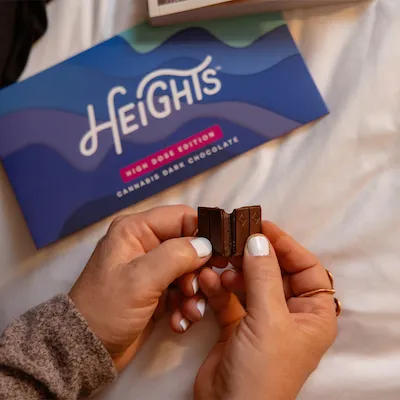Weaving cannabis into our lifestyles is a natural process that our bodies are already equipped to carry out. Decades of research reveal that the most active parts of the cannabis plant, the cannabinoids, work with receptors in our bodies like keys in locks.
Key roles in the endocannabinoid system
The endocannabinoid system has several different receptors throughout the body. The receptors are located in the nervous, respiratory, circulatory and digestive systems. Science identified CB1 and CB2 as two of the receptors in the endocannabinoid system. When cannabinoids interact with the receptors, neurons trigger and the body’s messages are passed and carried out in a variety of ways. These critical functions help us maintain homeostasis, a state of equilibrium in the body.
The role of cannabinoids
Cannabinoids are called endocannabinoids when they are created from within. When they come from sources outside of the human body, they are known as phytocannabinoids. Phytocannabinoids and cannabinoids are often terms that are used interchangeably.
CBD is a cannabinoid beneficial to our wellbeing in many ways. It has many different therapeutic uses that help reduce anxiety, ease muscle tension and boost cell function. Many people have used CBD to help rejuvenate their bodies, enjoying its powerful, non-psychoactive effects.
Popular science informs us that out of over 100 known cannabinoids in the cannabis plant, THC is one that interacts naturally with our euphoria. From stress reduction to introspection, the psychoactive qualities of THC allow busy minds to slow and bodies to relax.
The role of the CB1 receptor
Discovered in 1990, CB1 is located in the brain in areas like the hippocampus and cerebellum. CB1 receptors can also be found in the spleen, white blood cells, male and female reproductive organs. CB1 receptors help us with our memory processing, regulation of pain and our motor control. They help us feel euphoria and play a role in the anticonvulsive pathways that reduce seizures. When CB1 receptors are stimulated they affect circulation and the psyche.
Ever heard that it’s impossible to overdose on THC? That’s because our cardiovascular and respiratory functions are located in the area of the brain called the medulla oblongata and brain stem, which has no CB1 receptors at all. THC binds very closely with CB1 receptors, in contrast to CB2 receptors which doesn’t bond with. Science suggests that cannabinoids with an affinity for CB1 can help with the prevention of neurodegenerative conditions like Parkinson’s, Alzheimer’s and multiple sclerosis.
The role of the CB2 receptor
In 1993, CB2 receptors were discovered. CB2 receptors are found in our tonsils, spleen and white blood cells. While CB1 receptors are located throughout the brain and body, CB2 receptors are mostly in or immune and gastrointestinal system. When they are found in the brain, there aren’t as dense as the CB1 receptors. When CB2 receptors are stimulated, they have the ability to reduce inflammation. This makes them valuable for pain reduction and the minimization of damage to tissues. Stimulated CB2 receptors benefit people with conditions like arthritis, IBS and Crohn’s disease.
Cannabinoids that need further research
Other cannabinoids that are currently being researched for their medicinal potential include:
THCV
- Appetite suppression
- Treatment of diabetes
- Anti-anxiety
CBDV
- Seizure reduction
- Anti-inflammatory
- Non-psychoactive
CBG
- Neurological disorders
- Skin disorders
- Antifungal
CBC
- Blocks pain and inflammation
- Combats breast cancer
- Promotes relaxation
CBN
- The natural Diazepam
- Non-psychoactive
- Encourages sleep and pain relief
THCA
- Helps with appetite loss
- Anti-inflammatory
- Non-psychoactive








.svg)

